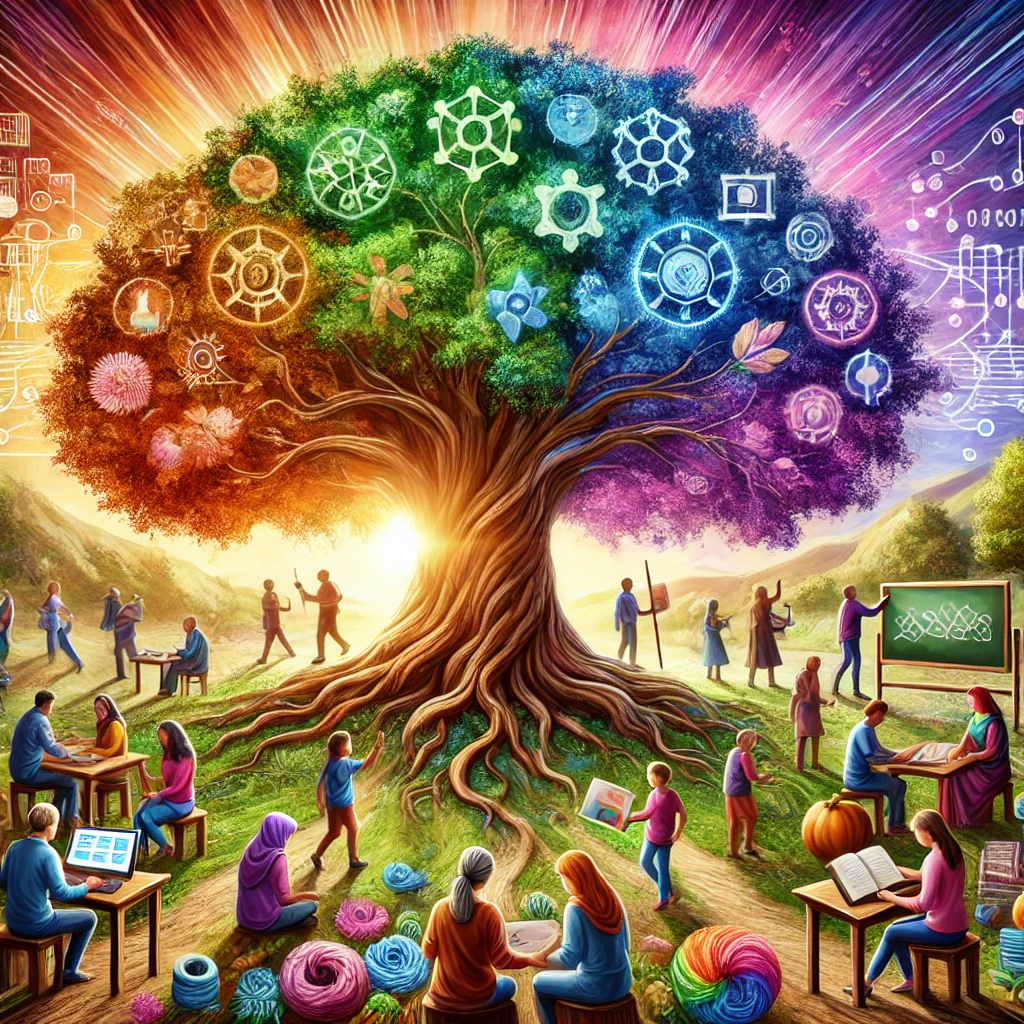In an era where technology is advancing at an unprecedented rate, the debate about the value of a university degree continues to be a hot topic. Many wonder whether the traditional route of higher education is still relevant when alternative learning paths, such as online courses, trade schools, and entrepreneurial ventures, have gained prominence. Despite this, a university degree remains one of the most reliable ways to open doors to a world of opportunities, offering not only career advancement but also personal growth, networking opportunities, and intellectual enrichment. The journey through higher education is not just about acquiring knowledge—it is about shaping individuals who are ready to thrive in a complex, interconnected world.
1. The Power of Knowledge and Expertise
A university degree is often the gateway to acquiring specialized knowledge that can define a person’s career. The experience of enrolling in an academic program goes beyond just memorizing facts and figures—it is about understanding the theories, principles, and methodologies that underpin a specific field. Whether studying engineering, literature, business, or the social sciences, university courses are designed to teach students to think critically, analyze information, and solve complex problems.
For example, a student pursuing a degree in biology might not only learn about cells and ecosystems but also how to conduct research, design experiments, and apply their findings to real-world scenarios. These skills are not just academic but practical, helping graduates transition seamlessly into their chosen professions. In fields such as healthcare, law, and education, in-depth knowledge gained during university is crucial for ensuring that professionals can meet the demands of their respective industries and contribute meaningfully to their communities.
Furthermore, university education nurtures intellectual curiosity. In an environment surrounded by experts in their fields, students are encouraged to explore topics that spark their interest, fueling a passion for lifelong learning. This kind of learning experience is difficult to replicate in self-paced online courses or on-the-job training. It is this deep and varied knowledge that allows university graduates to become leaders, innovators, and change-makers in their fields.
2. Career Opportunities and Advancement

The professional world today is increasingly competitive, and a university degree provides a clear path to success in many industries. While some may argue that hands-on experience or entrepreneurship can also lead to success, research consistently shows that individuals with a university degree have access to a wider range of job opportunities, higher salaries, and greater career mobility. Many high-paying professions, particularly those in law, medicine, engineering, and finance, require at least a bachelor’s degree to even be considered for entry-level positions. For those looking to advance within their organizations, a degree is often a minimum requirement for promotions or leadership roles.
For example, in fields such as computer science and technology, while coding skills and experience can be valuable, employers often prefer or even require candidates with a degree in computer science or a related field. The reasoning behind this is simple—degree programs provide not only technical skills but also critical thinking and problem-solving abilities that are crucial in navigating complex challenges. A degree also signals to employers that a candidate has the discipline and determination to complete a rigorous academic program.
Moreover, the earning potential for degree holders is significantly higher compared to those without a degree. According to various studies, university graduates tend to earn more over their lifetimes. This salary gap is not just a short-term advantage but grows over time, with individuals with higher levels of education enjoying increased job security and financial stability.
3. Networking: Building Lifelong Connections
University is not just a place for academic learning—it’s also a unique environment for building a professional network. For many students, the connections they make during their time at university become some of their most valuable assets throughout their careers. Universities offer opportunities to meet professors, peers, alumni, and industry professionals, each of whom can provide guidance, mentorship, or career opportunities.
In addition to the formal academic relationships formed in the classroom, university life is rich with extracurricular activities, clubs, events, and internships, all of which foster informal networking opportunities. Participating in university organizations or academic societies helps students develop leadership skills and meet like-minded individuals who share similar goals and passions. These connections often lead to internships, job opportunities, or collaborations after graduation.
Moreover, universities frequently host career fairs, workshops, and networking events, bringing together students and employers. These events give students a head start in securing job placements and internships, and many graduates find their first jobs through connections made during university. In the age of LinkedIn and online networking, the face-to-face connections made at university remain invaluable.
4. Personal Growth and Development
While career prospects and financial rewards are often the driving factors behind pursuing a degree, university life also plays a crucial role in personal development. The university experience is a transformative journey, shaping individuals in ways that go far beyond academics. It is a time of self-discovery, independence, and personal growth.
Living away from home for the first time, managing academic responsibilities, and navigating social dynamics all contribute to the development of critical life skills. Students learn to balance their time, prioritize tasks, and develop resilience in the face of challenges. These life skills are essential not only for professional success but also for personal well-being. The university environment, with its diverse student body, encourages students to step outside their comfort zones and engage with people from different backgrounds, cultures, and perspectives, fostering empathy, open-mindedness, and social awareness.
Additionally, the sense of accomplishment that comes with completing a degree—especially for those who face significant personal or financial challenges—can build immense self-confidence. This newfound confidence can carry graduates through challenges in both their personal lives and professional careers, allowing them to approach future obstacles with a positive and determined mindset.
5. Access to Research, Innovation, and Resources
One of the often-overlooked benefits of earning a university degree is the access it provides to cutting-edge research and innovation. Many universities are at the forefront of groundbreaking discoveries in various fields, and students are given opportunities to engage with these developments. Whether through research assistantships, internships, or independent projects, students can contribute to advancements that shape the future of science, technology, medicine, and more.
In addition to research opportunities, universities also provide access to libraries, labs, and other resources that students might not have access to outside the academic environment. These resources help students enhance their knowledge, conduct high-level research, and even innovate in their fields. For instance, a university student working in a biology lab might have access to state-of-the-art equipment, fostering a deep understanding of experimental techniques and methodologies that would be difficult to replicate in a non-academic setting.
6. A Foundation for Lifelong Learning

One of the most enduring benefits of a university degree is the foundation it provides for lifelong learning. As the job market continues to evolve and industries shift, the ability to adapt and learn new skills is essential for long-term career success. A university education teaches students how to learn, think critically, and engage with complex ideas, skills that are transferable to almost any field.
In today’s fast-paced world, the need for continuous professional development is more important than ever. Whether it’s earning an additional certification, pursuing graduate studies, or staying updated with new technologies, university graduates are often better equipped to pursue further education or professional development opportunities throughout their careers.
Conclusion: The Lasting Impact of a University Degree
In conclusion, the value of a university degree extends far beyond the classroom. It is an investment in personal and professional growth, opening doors to new opportunities, advancing careers, and helping individuals become well-rounded, confident, and competent professionals. A university education is about more than just obtaining a job—it is about building the foundation for a fulfilling and impactful life. With the knowledge, skills, networks, and experiences gained during university, graduates are prepared to navigate the complexities of the modern world and make meaningful contributions to their communities and beyond. As we move further into the 21st century, the importance of a university degree remains undeniable—a powerful tool for unlocking human potential and fostering a better, more connected world.

